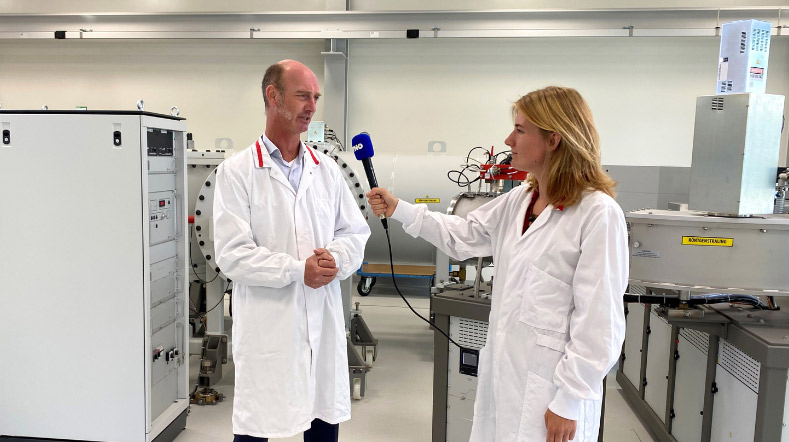
Data-driven target discovery and disease insight
Collecting, managing and analysing vast amounts of data regarding diseases, targets and interventions is a challenging endeavour. TNO combines its expertise, deep understanding of disease mechanisms, smart algorithms, and the latest public and proprietary data to help pharmaceutical and nutrition companies find the answers they need. This accelerates and streamlines the compound and nutraceutical discovery and validation process and offers new insights into disease pathways.
Your partner in discovery
Addressing new therapeutic modalities and novel molecular interventions demands the most complete and thorough data in the earliest stages of development, and the right analysis to uncover new insights.
TNO applies decades of experience in disease pathways, target identification, and data analysis to help pharmaceutical, food, and nutraceutical companies find the answers they need swiftly, efficiently, and effectively. The result is faster identification of the targets and interventions most likely to attenuate disease development and the discovery of relevant biomarkers to aid in disease detection.
Beyond the algorithm
Many companies offer to collect and sort relevant target and compound data using artificial intelligence (AI) algorithms. But without deeper insight into disease mechanisms and progression, crucial details can be missed or overlooked.
TNO’s expertise in both disease pathways and target identification and validation ensures that the data researchers seek will be complete, comprehensive and clear enough to fully answer their research question, whether they engage us to perform the analysis or conduct the data search themselves, using our state-of-the-art platform.
We put our experience to work in both B2B and public/private partnerships to gain deeper understanding of disease pathways, relevant biomarkers, novel targets, and new insights that can better inform both data collection and novel compound development.
The path to validation
At every stage of data collection and analysis, TNO can provide the expertise to support compound discovery and disease intervention activities. We put our experience, knowledge, technology, and algorithms to work to provide scientifically-proven, data-driven insights into disease mechanisms, target efficacy and safety, and other crucial research questions.
This will save time and money by helping researchers focus their efforts on targets and interventions that can be truly effective, and helps ensure that preclinical interventions will translate to later clinical studies.
TNO combines data- and AI-based text mining with in-house expertise to create a comprehensive report of a target intervention’s safety profile. Our in silico TSA is designed to uncover adverse effects of target modulation. We have enabled pharmaceutical, biotech and nutraceutical companies make the right strategic choices in target progression and de-risking for hundreds of targets.
TNO can provide evidence to support the value of a protein as a potential drug target, using data- and text-mining strategies and our own understanding of the mechanisms of disease. We combine our expertise with expression data, genetics and (pre)clinical observations to enable target nomination and validation, and ensure translatability to later human studies. We have provided a multitude of thorough, accurate, and customised TEAs to our clients and partners.
Companies that prefer to conduct in-house safety/efficacy assessments can still make use of TNO’s expertise. Our intuitive, web-based TargetTri platform efficiently extracts essential, target-centric information from multiple data sources, including PubMed.
Unlike other commercial data collection services or manual searches, TargetTri is enhanced with TNO’s deep understanding of disease mechanisms and our work on hundreds of TSAs and TEAs. We support AI-based searches with our own enriched terminology, allowing for optimal searching. The proprietary system also contains expert-based ontologies and guides data interpretation by weighing data relevance. This saves significant time and resources, as compared to manual searches.
True understanding of disease mechanisms is the key to uncovering novel targets for intervention. TNO’s unique approach combines our expertise with proven technologies – including data mining, system biology and AI algorithms – and (pre)clinical expression data to accurately map human disease networks and weigh pathological pathways.
Target candidates are then validated with in vitro strategies, including gene knock-outs and interventions. This discovery workflow was validated using MASH (pdf) (formerly NASH)/liver fibrosis, in which we identified multiple targets that attenuate fibrosis. TNO is now ready to work with partners to both further develop the identified MASH targets and to use our target discovery workflow to map other disease networks and therapeutic indications.
Reliable detection of (early) biomarkers of disease can mitigate – or even prevent – long-term damage from disease progression. We apply our understanding of the fundamental mechanisms of disease to identify tissue-specific (early) biomarkers for low-grade inflammation. The validation of our workflow resulted in the identification of key biomarkers for inflammation in liver and adipose tissue.
In addition, we applied this workflow to identify biomarkers for fibrosis in MASH (pdf). The blood test that can analyse these biomarkers without a liver biopsy has been patented. TNO is now eager to apply this approach to identify key biomarkers for other diseases.
INoVA Hub
Finding the right model to answer your research question—and knowing what’s already available—can save you time and accelerate your work. But with traditional tools like PubMed, that’s easier said than done.
That’s why TNO developed the INoVA Hub: a smart, web-based platform designed to help scientists navigate the entire ecosystem of preclinical models. Whether you're searching for cutting-edge non-animal innovations (NAMs) like organoids and in vitro systems, or animal models, INoVA Hub makes it easy to find what you need.
The INoVA hub automatically pulls in the latest scientific literature daily and highlights both animal and non-animal models and their outcomes mentioned in PubMed articles. Smart filters allow searches by model type, application area, and more. Direct links to the source articles enable quick access to the original content, offering deeper insights.
The INoVA hub is funded by ZonMw and the Transition Programme towards Animal-Free Innovation (TPI) of the Dutch government and is designed to contribute to animal-free research wherever possible. By making NAMs easy to find and compare, it helps researchers make informed choices and encourages the shift toward innovative science. The INoVA can be freely used for non-commercial research.
Get more from your data search
Whether you need a comprehensive TSA or are eager to explore complete disease pathways to identify new targets or biomarkers, TNO can put our expertise to work for you. Contact us today to uncover the many ways you can streamline, improve, and enhance your data collection with a team of knowledgeable experts and the latest technology.
Get inspired
Testing medicines outside the body: intestinal–liver–kidney model accelerates drug development


PPP uncovers new insights into MASLD development


Time setters: reduce long waits for new medication with AMS


Ex vivo organ perfusion provides accurate drug development data


TNO helps accelerate drug development through insight





